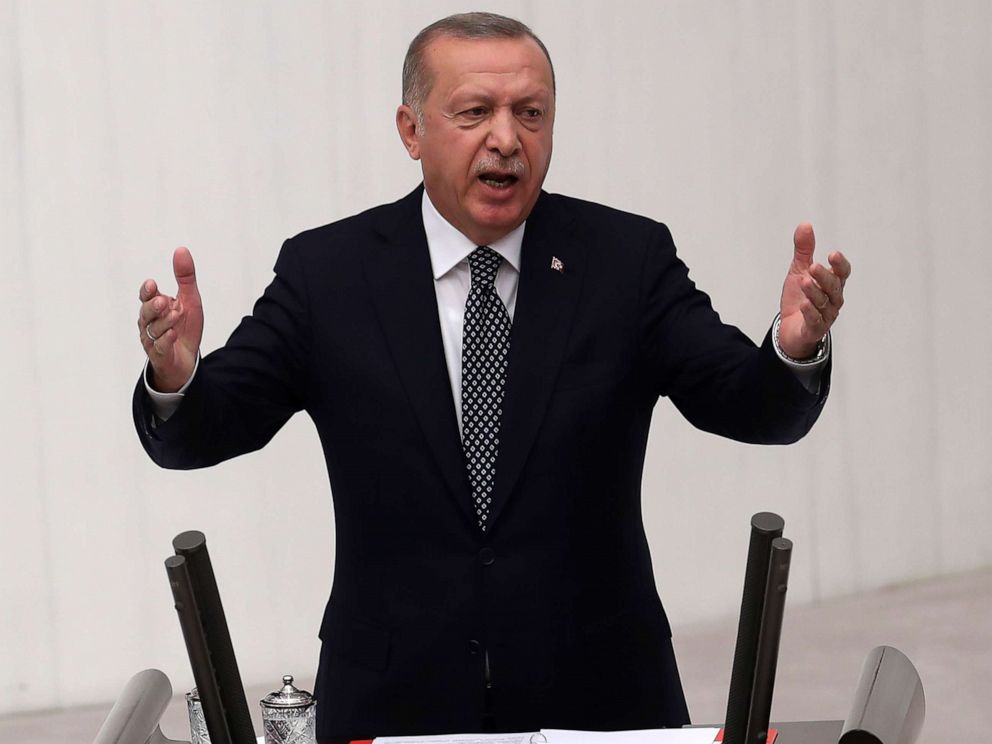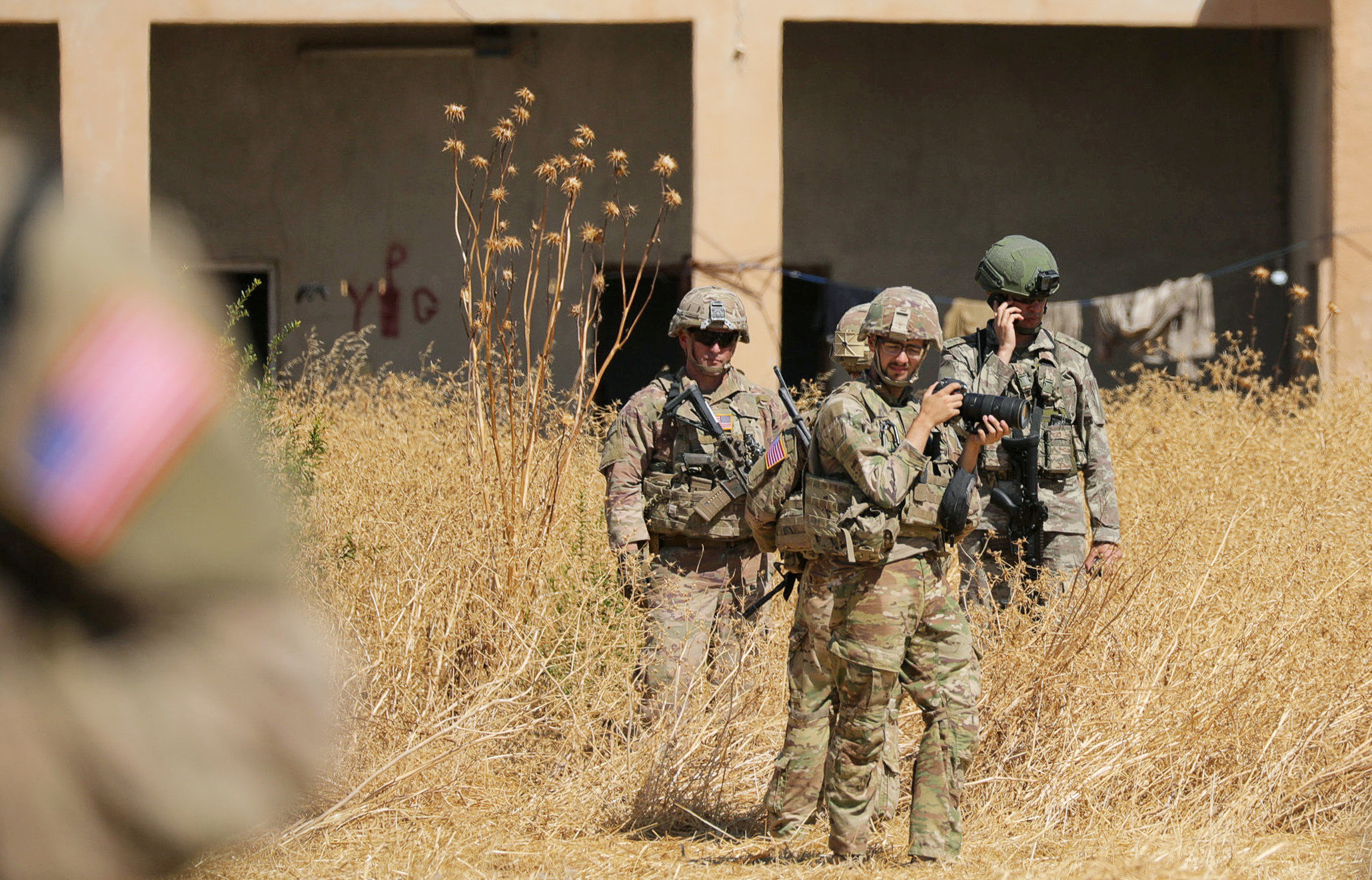Turkey begins mobilizing against Syria; US begins removing forces from area
Donald Trump made the decision after speaking to the Turkish president Sunday.
Turkey is set to invade Syria and the U.S. said it would remove all of its forces from the "immediate area," according to the White House.
A U.S. official confirmed Monday that American troops in northeast Syria were pulling back.
The Turkish move is likely to put the Kurdish forces that helped the U.S. defeat ISIS in peril. Turkey considers the Kurdish forces -- the PKK and YPG -- terrorist organizations.
The news came late Sunday after President Donald Trump spoke to Turkish President Recep Tayyip Erdogan by phone earlier in the day.
The White House also confirmed that Turkey will take possession of all captured ISIS fighters from the past two years.
"The United States Government has pressed France, Germany, and other European nations, from which many captured ISIS fighters came, to take them back, but they did not want them and refused," the U.S. said in it statement. "The United States will not hold them for what could be many years and great cost to the United States taxpayer."
On Monday morning, Trump tweeted, "The United States was supposed to be in Syria for 30 days, that was many years ago. We stayed and got deeper and deeper into battle with no aim in sight. When I arrived in Washington, ISIS was running rampant in the area. We quickly defeated 100% of the ISIS Caliphate, including capturing thousands of ISIS fighters, mostly from Europe.
"But Europe did not want them back, they said you keep them USA! I said “NO, we did you a great favor and now you want us to hold them in U.S. prisons at tremendous cost. They are yours for trials.” They again said “NO,” thinking, as usual, that the U.S. is always the “sucker,” on NATO, on Trade, on everything. The Kurds fought with us, but were paid massive amounts of money and equipment to do so. They have been fighting Turkey for decades. I held off this fight for almost 3 years, but it is time for us to get out of these ridiculous Endless Wars, many of them tribal, and bring our soldiers home," Trump continued.
"WE WILL FIGHT WHERE IT IS TO OUR BENEFIT, AND ONLY FIGHT TO WIN. Turkey, Europe, Syria, Iran, Iraq, Russia and the Kurds will now have to figure the situation out, and what they want to do with the captured ISIS fighters in their “neighborhood.” They all hate ISIS, have been enemies for years. We are 7000 miles away and will crush ISIS again if they come anywhere near us!," he tweeted.
...figure the situation out, and what they want to do with the captured ISIS fighters in their “neighborhood.” They all hate ISIS, have been enemies for years. We are 7000 miles away and will crush ISIS again if they come anywhere near us!
— Donald J. Trump (@realDonaldTrump) October 7, 2019

One of the president's strongest defenders in the Senate -- Lindsey Graham of South Carolina -- called into "Fox & Friends" Monday morning, saying the president's decision "impulsive."
"I hope I'm making myself clear how shortsighted and irresponsible this decision is in my view," Graham said. "This to me is just unnerving to its core."
He said that ISIS is not defeated and that is "the biggest lie being told" by this administration.
Graham said he would be introducing a Senate resolution opposing this and ask for a reversal of the decision.
Trump and Erdogan agreed to meet at the White House in November, Turkish state media reported, though the White House did not mention that in its statement.
Negotiators from the U.S. and Turkey had reached an agreement Aug. 7 to create a safe zone in northeastern Syria in order to secure the territory once held by the Islamic State.

The deal came after Erdogan had threatened to take up an offensive against the U.S.-backed Kurdish forces that had helped eliminate ISIS.
But the agreement was only a stopgap with Erdogan repeating those calls in recent weeks.
It's unclear if the U.S. will remove forces from Syria entirely, or what the "immediate area" might encompass.
ABC News' Luis Martinez, Conor Finnegan and Elizabeth McLaughlin contributed to this report.




